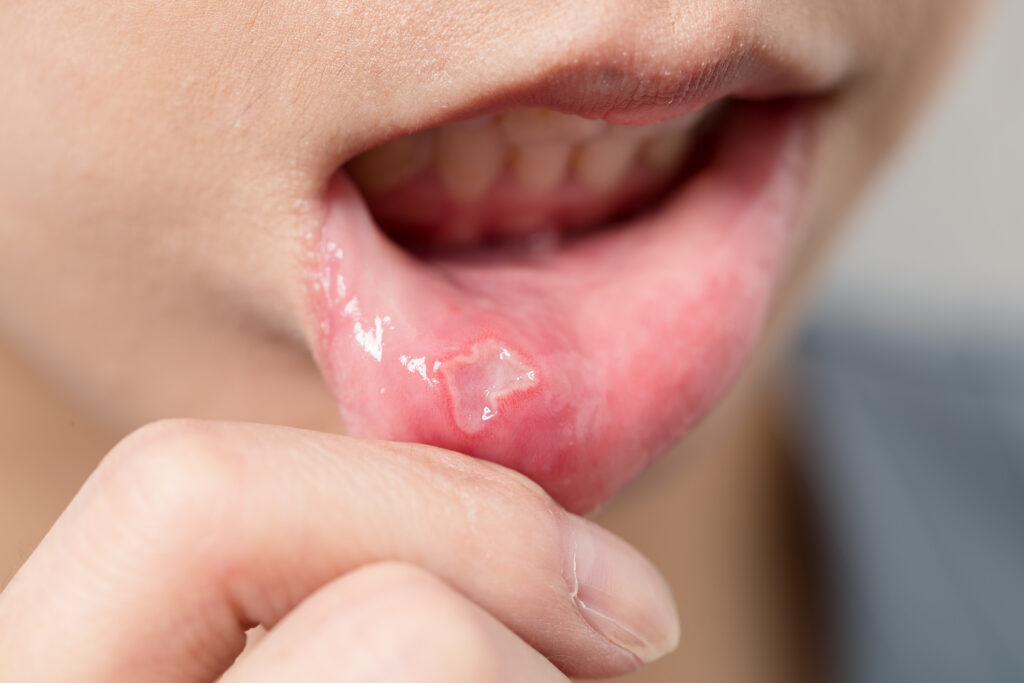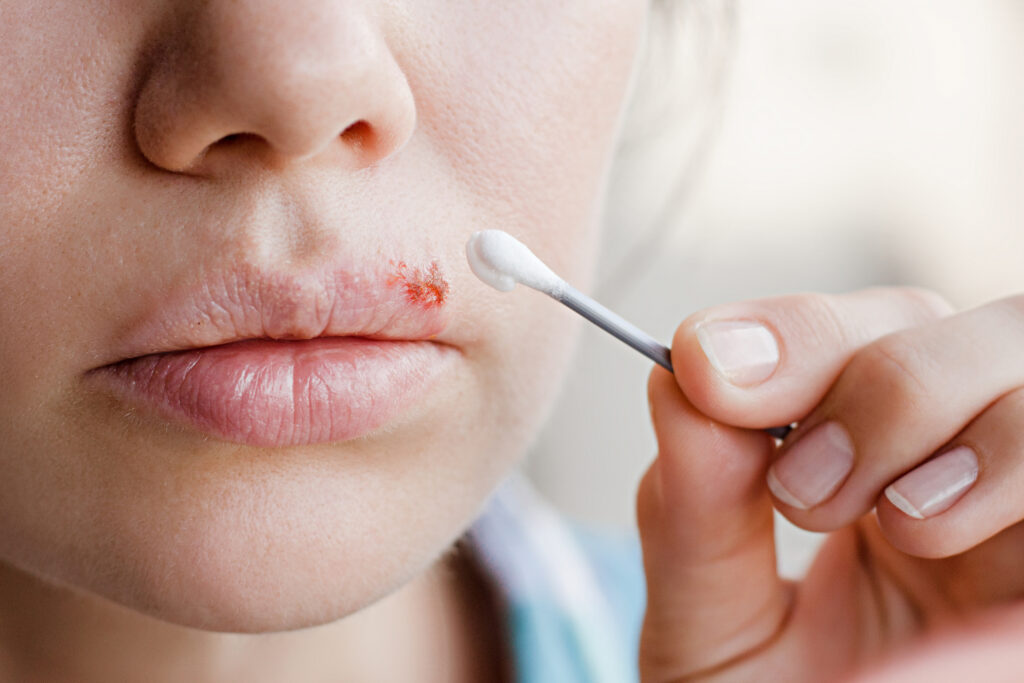
Mouth ulcers (also known as aphthous ulcers or canker sores) can be painful and frustrating, and with so many myths and misinformation out there, finding accurate information can sometimes be a struggle.
When you’re dealing with mouth ulcers, it’s important to separate fact from fiction. Knowing the truth about common myths, like whether mouth ulcers are contagious or the same as cold sores, may make a big difference in how you manage and prevent them.
Mouth ulcers are usually a minor but uncomfortable nuisance, however they can sometimes be associated with more serious health problems. If your mouth ulcer lasts longer than 3 weeks, is getting more painful and red or you have ulcers somewhere else on your body, it’s best to get it checked by your doctor.
Five common mouth ulcer myths
Let’s find out more about some of the myths that surround mouth ulcers:
Myth 1: Mouth ulcers are contagious
Mouth ulcers are not contagious – you cannot catch them off someone else and they are not spread by kissing or sharing food and utensils. Make sure you don’t confuse a mouth ulcer with a cold sore which is contagious. Cold sores usually develop on the outside of the mouth around the lips and often start with a tingling, itching or burning feeling.
While mouth ulcers can sometimes be a sign of an underlying medical condition, they’re usually nothing to worry about and clear up on their own.

Myth 2: A mouth ulcer doesn’t need treatment
While it is true that most mouth ulcers will heal naturally within a week or two, ignoring them may mean unnecessary pain or discomfort, particularly when eating and drinking.
Your pharmacist or doctor can recommend treatments that help:
- Reduce the pain or discomfort
- Speed up healing
Ask your pharmacist about using a topical treatment – such as Kenalog in Orabase that can help reduce swelling and ease discomfort, while providing a protective barrier against further irritation and help speed up healing.

Myth 3: Spicy food causes mouth ulcers
You may think that if you eat lots of spicy food it’ll cause a mouth ulcer, but that’s not really the case. While spicy food can make an existing ulcer feel worse and may even slow down the healing process, it’s not usually the reason you get one in the first place.
However, a mouth ulcer can be linked to food and may be triggered if:
- You have an intolerance or allergic reaction to a particular ingredient in the food
- The food is served too hot, and you burn your mouth
- The food is hard or sharp (like a corn chip) and cuts or grazes the inside of your mouth.

Myth 4: Mouth ulcers are the same as cold sores
Mouth ulcers and cold sores can sometimes be mistaken for each other, but they are caused by different things and need different approaches to their treatment and management.
Cold sores:
- Are small fluid-filled blisters that burst and crust over to form scabs
- They may appear anywhere on your face, including on the outside of your mouth around the lips
- Are caused by a virus and are contagious – being easily spread to other people and to other parts of your body.
Mouth ulcers:
- Usually develop inside your mouth on your cheeks or lips, but they can also form on your gums, the roof of your mouth or on your tongue
- They typically appear as yellowish-grey oval sores with a red ring of inflammation around them
- They can be caused by various things, including biting your cheek, being stressed or tired, or having a vitamin deficiency
- Are not contagious
Talk to your doctor or pharmacist If you are unsure about whether you have a cold sore or mouth ulcer and how best to treat it.

Myth 5: Only adults get mouth ulcers
Mouth ulcers can affect people at any age, including children and teenagers (often first appearing in 10 to 19 year-olds).
While the exact cause is not known, in children and teenagers mouth ulcers may often be linked to factors such as hormonal changes during puberty or periods of stress (such as exam times). Minor mouth injuries from braces or sporting activities can also lead to mouth ulcers.
Mouth ulcers in a young child can be a sign of some common childhood infections, so check with your pharmacist or doctor if you are unsure about their cause and how best to treat mouth ulcers in your child.

Why debunk the myths?
Despite their small size, mouth ulcers can cause pain and discomfort. Debunking the myths and being able to distinguish facts from fiction may help prevent unnecessary concerns and prolonged discomfort – allowing you to focus on helping to clear your mouth ulcer up faster.
